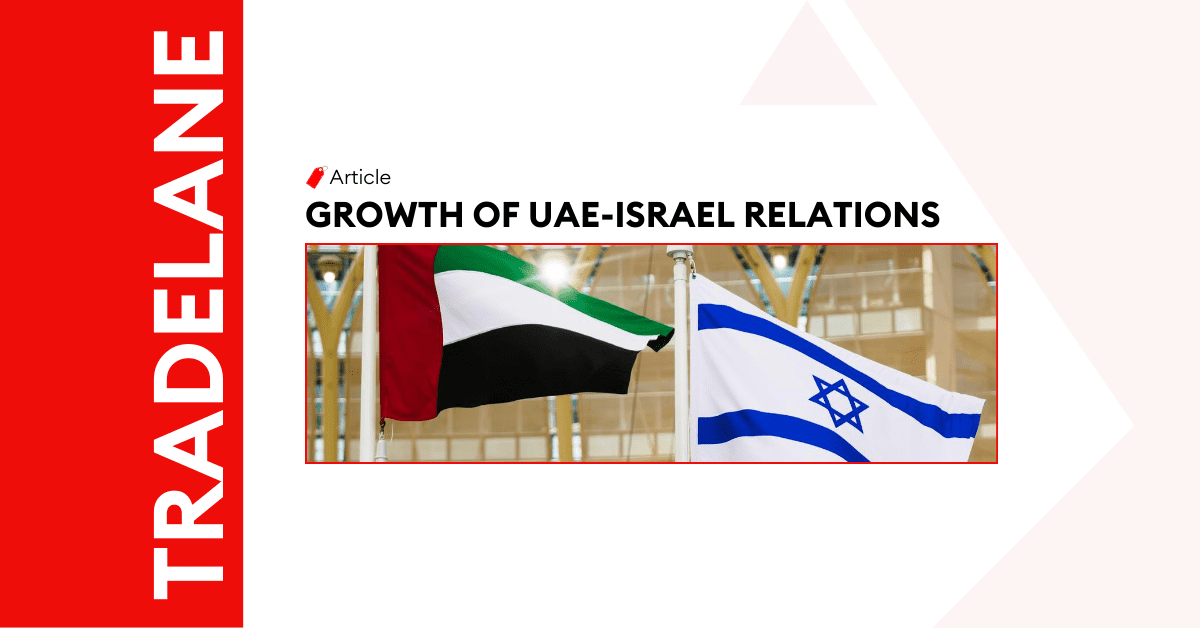
Bridging Nations: The Rapid Growth of UAE-Israel Relations
Introduction
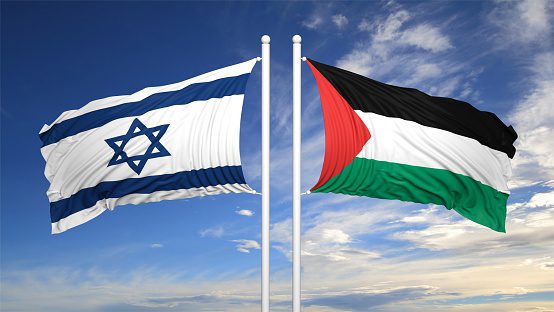
The diplomatic landscape of the Middle East underwent a historic transformation with the announcement of the Abraham Accords in 2020, ushering in a new era of cooperation between nations in the region. Among the notable developments, the relationship between the United Arab Emirates (UAE) and Israel stands out as a testament to the remarkable progress made in fostering growth, building connections, and creating new opportunities.
This article provides an overview of the burgeoning bilateral relations between the UAE and Israel, encompassing diplomatic strides, economic collaborations, technological advancements, and the recent Comprehensive Economic Partnership Agreement (CEPA). The rapid expansion of this partnership has not only solidified diplomatic ties but also holds immense promise for mutual prosperity in the years to come.
Economic Overview of Israel and UAE
After the announcement of Abraham Accords, the UAE and Israel have made incredible progress in spurring growth, building connections, and creating new opportunities. Both nations are collaborating across different fields, including investment, trade, technology, health, tourism, and more.
Below are some of the areas that has helped UAE and Israel to strengthen their bilateral relationship:
Diplomatic Relations
- The diplomatic relations between the two countries started in October 2020 when UAE’s Minister of State for Financial Affairs (HE Obaid bin Humaid Al Taye), Minister of Economy (HE Abdullah bin Touq Al Marri), and Assistant Minister for Culture and Public Diplomacy at MOFAIC (HE Omar Ghobash) visited Israel.
The other events that mark successful diplomatic relations among the two nations are as follows:
- In March 2021, HE Mohammad Al Khaja presented his credentials to the former President of Israel, Reuvin Rivlin, becoming the first ambassador of the UAE to Israel.
- In June 2021, the Alternate Prime Minister and Foreign Minister Yair Lapid visited UAE. During the visit, the first Israeli Embassy in Abu Dhabi and Consulate General in Dubai formally opened. The series of Israeli’s representative visit continued later in January 2022 and June 2022.
Economy and Trade Relations
A series of agreements and MOUs were signed between the two nations including:
Year | Detail |
September 2020 |
|
October 2020 |
|
November 2020 |
|
December 2020 |
|
January 2021 |
|
March 2021 |
|
May 2021 |
|
June 2021 |
|
November 2021 |
|
March 2022 |
|
May 2022 |
|
Technology Advancements
The UAE and Israel has several agreements and partnerships in the field of technology to boost the advancement in both nations. In September 2020, Mohammad Bin Zayed University of Artificial Intelligence and Weizman Institue of Science of Israel signed an agreement to advance the development of AI through academic exchanges, conferences, and the establishment of a virtual institute for AI. Some of the other agreements were signed between Abu Dhabi Global Market and Israel Securities Authority and Bank Hapoalim (November 2020), DIFC FinTech Hive and FinTech-Aviv (November 2020), UAE-Israel Tech Zone (December 2020), EDGE and Israel Aerospace Industries (March 2021), G42 and Rafael Advanced Defense Systems (April 2021), and approval of multi-million-dollar joint fund for research and development.
UAE-Israel Trade History
UAE exports to Israel were recorded at USD 980M in 2021, with the main products being: Diamonds (USD 399M), Broadcast Equipment (USD 104M), and Gold (USD 50.9M). In the last 26 years, the exports of UAE to Israel have increased at an annual rate of 43.5%, from USD 81.1k in 1995 to USD 980m in 2021.
On the other hand, Israel exports to the UAE were reordered at USD 342M. The main exported products were Diamonds (USD 235M), Video Recording Equipment (USD 21.9M), and Precious Stone (USD 7.53M). during the last 26 years, the exports of Israel to the UAE has increased at an annual growth rate of 31%, from 308K in 1995 to USD 342M in 2021.
The above data indicates that the UAE is net exporter for Israel.
UAE-Israel Mutual Trade Opportunities
In terms of level of development and economic size, UAE and Israel are much alike. An easy way to identify the mutual trade opportunities is to see the product categories of import and export flows of the UAE and Israel that complement each other.
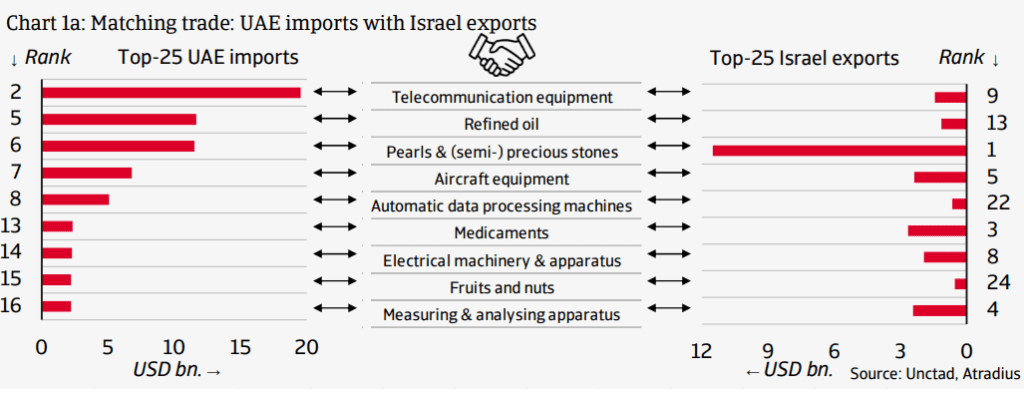
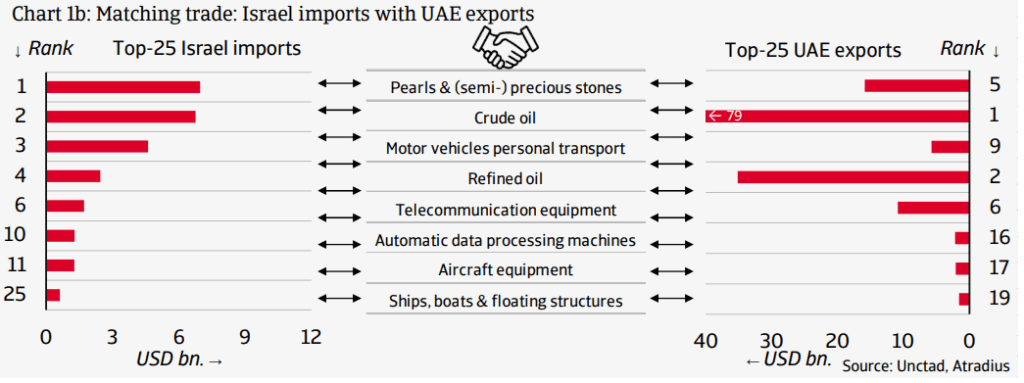
UAE and Israel’s Major Seaports and Airports Facilitating Trade
Major UAE Ports
Port Khalifa in Abu Dhabi
Annual Container Capacity: More than 14.5 million TEUs
This port is one of the largest deepwater ports in the world located near the Taweelah offshore port. The port can handle different types of cargo types, including general cargo and containers, RoRo, dry bulk, liquid, and gas.
Port of Jebel Ali
Annual Container Capacity: More than 19.3 million TEUs
This is one of the largest and most technologically advanced ports in the Middle East. The port is capable of handling general cargo as well as the temperature-sensitive cargo without compromising their integrity.
Mina Zayed Port
Container Capacity: 15,000 TEUs
It is a deepwater commercial port in the central of Gulf Coast of United Arab Emirates. Mainly this port handles breakbulk cargoes, passengers, dry, and liquid bulk.
Mina Rashid Port
Container Capacity: 1,500,000 TEUs
This is one of the key cruise terminals and cargo ports in the UAE. This is also the first commercial port in the Emirates. The port handles cruise vessels, RoRo, Ro-PAX and passengers.
Port of Ajman
Container Capacity: 2.5 million TEU
This is one of the oldest deepwater ports in the UAE. The port handles multiple commodities that include oil, gas, containers, chemicals, and general cargo.
Major Israeli Ports
Port of Haifa
Container Volume: More than 1,460,000 TEUs
It is one of the most prominent international seaports across the globe. This natural deepwater harbor accommodates passenger and cargo ships all year around. The port currently handles more than 30 million tons of cargo on an annual basis. The major exports for this port are machinery, citrus fruits, textiles, and chemicals; while the major imports are oil, petroleum products, grain, and raw materials.
Port of Ashdod
Container Volume: More than 1,477,000 TEUs
This port is the largest in Israel in terms of cargo capacity and handles RoRo, passengers, containers, tankers, and bulk carriers. The primary exports of this port are general cargo, grain, coal, and vehicles; while the major imports are oil, chemicals, fertilizers, citrus fruits, and manufactured goods.
Port of Eilat
Container Volume: More than 50,000 TEU
This is the only Israeli port on the Red Sea, which is mostly used for trading with Far East countries. The port has the capacity to handle 70,000 cars and 2.1 million tons of dry cargo annually.
Port of Ashkelon
It is an oil terminal which is located around 2 nautical miles Soutwest of Ashkelon city and 10 nautical miles southwest of Ashdod. This port is used by 60 tankers annually. Furthermore, the port offers 3 multi-buoys berths for loading and unloading.
Port of Hadera
This port lies between the Haifa and Tel Aviv and can handle around 7 million tons of cargo annually. This is an unloading terminal for coal and fuel oil.
Major Airports in United Arab Emirates
Dubai International Airport
IATA Code: DXB
This airport is one of the busiest ones in the world, acting as a commercial hub for many major airlines. The cargo terminal at this airport has a capacity of 3.3 million tonnes.
Abu Dhabi International Airport
IATA Code: AUH
It is the second largest airport in UAE and serves as a base for more than a hundred destinations across 56 countries. This airport processes an average of 13 million kg cargo every week.
Al Makhtoum International Airport or Dubai World Central
IATA Code: OMDW/DWC
This airport has been open for cargo flights since 2010 and is now considered as a main aviation cargo hub with 16 dedicated cargo terminals that have 12m metric ton capacity.
Major Airports in Israel
Ben Gurion Airport
IATA Code: TLV
This airport is one of the biggest in the Israel that controls most of the air traffic in the city of Tel Aviv. The airport is managed by the Israel Airports Authority.
Haifa Airport
IATA Code: HFA
It is another major airport in Israel. This small international airport is mostly used to handle the air operations to Eilat and Tel Aviv.
Ramon International Airport
IATA Code: ERL
This airport was recently opened for commercial use in 2019. It is the second busiest airports in Israel that serves the Haifa and Tel Aviv region. Furthermore, this airport replaces the former Ovda Airport and Eilat Airport.
Shipping Routes from/to UAE and Israel
By Air
There are multiple routes to send cargo from UAE to Israel with the fastest being through air freight.
Abu Dhabi International Airport to Ben Gurion International Airport
This is the fastest route to send cargo between the two countries, which covers the total distance of 2,107 km in about 3 hours and 20 mins with no direct stops.
The operating carriers on this shipping route include:
Carriers | Departures |
Etihad Airways | 1-2 times a week |
Gulf Air | Every 1-2 weeks |
Royal Jordanian | Every 2-4 weeks |
EgyptAir | 2-4 times a week |
Emirates | 1-2 times a day |
Dubai International Airport to Ben Gurion International Airport
This air route is the most frequently used one, which covers the total distance of 2,131 km in 3 hours 27 minutes with no direct stops. Multiple carriers are operating on this route; the details are as follows:
Carriers | Departures |
Emirates | 2-4 times a day |
Arkia Israeli Airlines | Every 1-2 days |
Israir Airlines | 2-4 times a week |
EL AL | Every 1-2 weeks |
Gulf Air | Every 1-2 weeks |
Royal Jordanian | 1-2 times a week |
Cyprus Airways | 2-4 times a week |
EgyptAir | 2-4 times a week |
Al Makhtoum International Airport to Ben Gurion International Airport
This route covers a total distance of 2,175km in 10 hours and 53 minutes. The cargo is first taken to Dubai International Airport in 1 hour 29 minutes and the transfer takes approximately 6 hours. After that the cargo is moved from Dubai International Airport to Ben Gurion International Airport in approximately 3 hours and 24 minutes. Only one carrier operates on this route; which is EgyptAir that departs every 1-2 weeks.
By Ocean
Jebel Ali to Ashdod
Port of Loading: Port of Jebel Ali
Port of Destination: Port of Ashdod
The quickest way to get cargo from UAE to Israel by sea takes 14 days and 22 hours, covering the total distance of 5,824km. The cargo is first carried from Jebel Ali to Suez Canal in 9 days 16 hours, which stays there for 4 days, and then sent from Suez Canal to Ashdod in 1 day 11 hours. The list of carriers operating on this route are:
Carriers | Departures |
Hapag-Lloyd | Every 1-2 weeks |
MSC | Every 1-2 weeks |
Jebel Ali to Haifa
Port of Loading: Port of Jebel Ali
Port of Destination: Port of Haifa
This route ships the cargo in 23 days and 7 hours, covering a total distance of 8,916 with 2 stops. The carriers operating on this route are:
Carriers | Departures |
Maersk | Every 2-4 weeks |
MSC | Every 1-2 weeks |
Abu Dhabi to Haifa
Port of Loading: Port of Abu Dhabi
Port of Destination: Port of Haifa
This route covers a total distance of 6,066km with 2 transfers along the way in 22 days 19 hours. Currently, only 1 carrier is operating on this route that departs 1-2 times a week. The cargo transfer from Abu Dhabi to Salalah (OMSLL) will take 2 days and 15 hours. The transfer takes approximately 4 days and then the cargo is shipped from Salalah to Port Said (EGPSD) in 5 days and 6 hours. The second transfer again takes 4 days approximately and then the cargo is shipped to the final destination from the Port Said to Haifa.
Ajman to Haifa
Port of Loading: Port of Ajman
Port of Destination: Port of Haifa
This route ships the cargo in 32 days and 7 hours, covering the total distance of 10,084km with 1 transfer. The leading carrier on this route is MSC that departs every 2-4 weeks.
Dubai to Ashdod
Port of Loading: Khalifa Port
Port of Destination: Ashdod Port
The cheapest way to ship cargo from Dubai to Ashdod is by using the Khalifa Port and sending it to Ashdod Port. The estimated time on this route is around 28 days, including the loading and unloading operations at the origin and destination.
By Road
Dubai to Ashdod
Without using air freight services, the quickest way to send cargo to Israel is by road. The entire route, from Dubai to Ashdod, takes about 7 days, including the loading and unloading at the origin and destination.
Why Invest in the UAE?
The United Arab Emirates (UAE) is an increasingly attractive destination for investors worldwide, offering a wealth of opportunities in various sectors. This summary provides a concise overview of the key reasons to consider investing in the UAE, drawing insights from multiple sources.
Strategic Location
The UAE’s strategic location at the crossroads of Europe, Asia, and Africa makes it a global business hub. It serves as a gateway to over 2 billion consumers, facilitating international trade and investment.
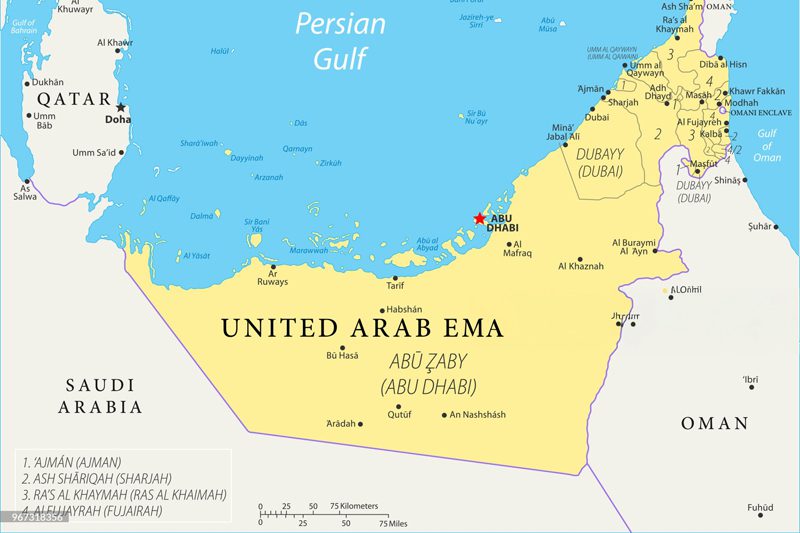
Economic Diversification
The UAE has actively diversified its economy beyond oil, with a strong focus on sectors like tourism, technology, and renewable energy. This diversification reduces dependence on oil revenue and enhances economic stability.
Business-Friendly Environment
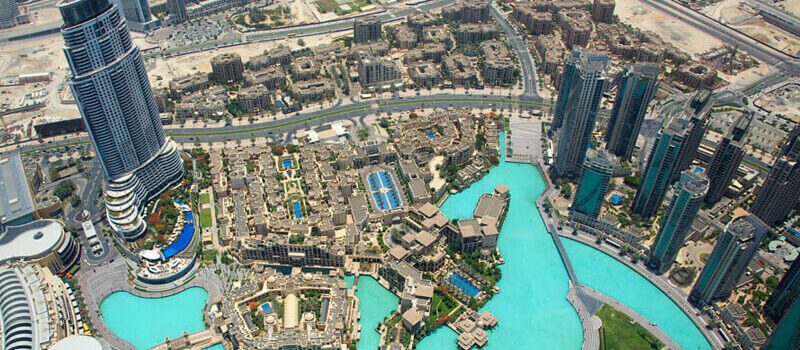
The UAE boasts a pro-business environment with minimal bureaucracy, low taxation, and various incentives for foreign investors. Free zones provide 100% foreign ownership, making it easier to set up businesses.
Infrastructure and Connectivity
World-class infrastructure, including modern airports, ports, and road networks, supports seamless business operations. The UAE’s connectivity enables efficient global trade.

Political Stability and Security
The UAE is known for its political stability and safety, making it an ideal location for long-term investments. The government’s commitment to ensuring a secure environment attracts investors.
Dubai hosted Expo 2020, showcasing innovation, culture, and opportunities. The event has attracted businesses and investors from around the world, fostering collaboration and growth.
Furthermore, Abu Dhabi’s ambitious Vision 2030 focuses on economic diversification, sustainable development, and innovation, creating significant investment opportunities in various sectors.
Tech and Innovation Hub Improving Quality of Life
The UAE offers a high quality of life for residents and expatriates, with excellent healthcare, education, and leisure options, attracting a skilled workforce and talent.
Furthermore, the UAE is investing in becoming a regional tech and innovation hub, with initiatives like Dubai Internet City and Area 2071, fostering innovation-driven growth.
Why Invest in Israel?
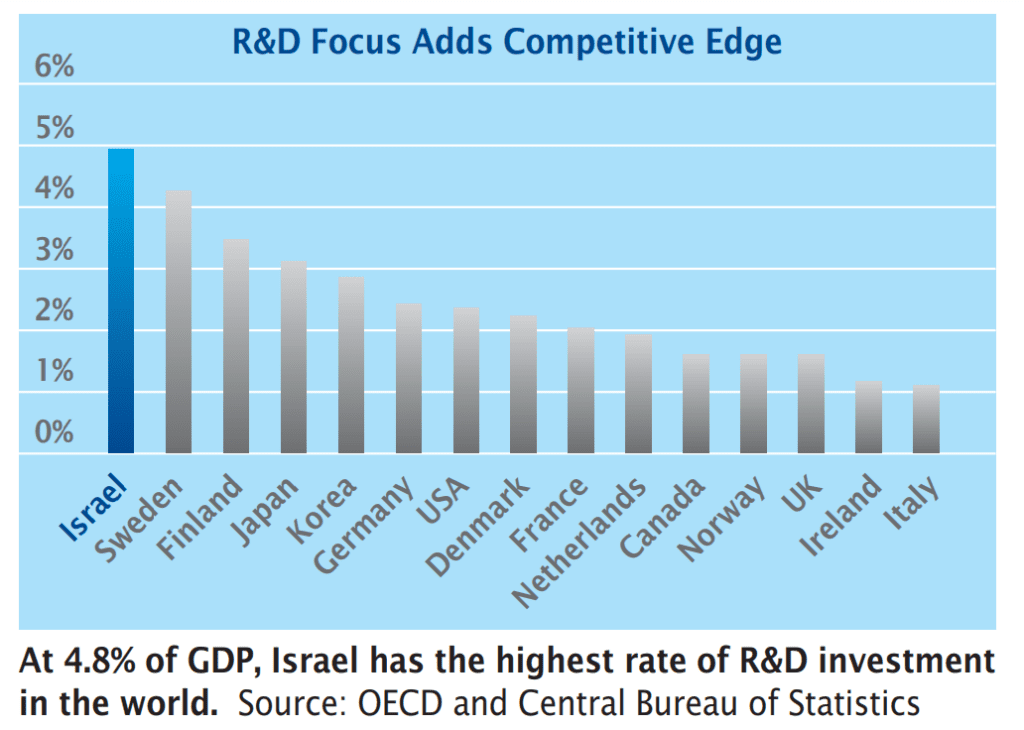
Israel is a country that invests most in the Research and Development (R&D) in the world. They have a highly skilled workforce, especially in high-tech and engineering. Furthermore, the country has strong and stable private consumption.
Growing Sectors
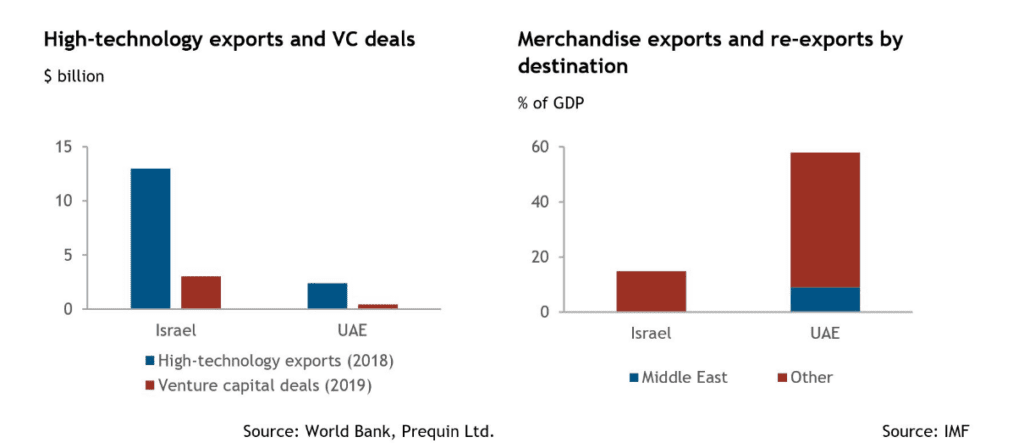
The growing sectors of Israel include:
- High-Tech sector has been the fastest growing sector in Israel in the recent years with an average annual growth rate of 8%.
- Bottled water, juices, and soft drinks are also among the quickest growing sectors in the country, along with apparel and footwear.
Based on the study by Israel’s largest consumer market database, the Fast-Moving Consumer Goods (FMCG) sector has stayed stagnant for consecutive 4 years.
Import Procedures
The employees of the Israel Customs Administration are responsible for handling and enforcing the import and export legality, prevent frauds and illegal activities, and supervise all the import and export to and from Israel.
The documents required to import to Israel include:
- Delivery Order
- Packing List
- Invoice
- Importer’s Customs Declaration
- Import Declaration
- Freight Bills
- Certificate of Origin
- Certificate of the Standards Institution of Israel
- Import Permit (issued by Ministry of Economy and Industry)
For certain imported products, there are some special documentation requirements from the competent authority (Transport Ministry, or Health Ministry, etc.)
For instance, a Kosher certificate is required to import food products like beef, poultry, and other kinds of meat. However, to encourage food trade, the Chief Rabbinate has allowed the exemption of certificates for importers that are recognized by any local kashrut agency.
Distribution Channels
Despite the fact that small grocery stores are the most important retail channels in the country in terms of number of stores, they struggle to compete with the supermarkets. The main reason for that is the competitive pricing and long operating hours offered by the supermarket stores.
There are three main retail food sub-sectors in Israel, including the supermarkets located in the outskirts of the city, traditional markets with a limited range of products, and the convenience stores present on the high streets or gas stations.
Benefits of Investing in Israel
Strong Economic Growth Rates
One of the main reasons that countries look to invest in Israel is its record economic growth. Despite the slight decline in the GDP amid Covid-19 lockdown in 2020, the country bounced back with over 2% growth in 2021 and 4% growth in 2022.
Government Support for Foreign Investments
The government of Israel encourages the foreign investments by initiating packages like Investment Promotion Act tax incentives for entrepreneurs. The recent act was the CEPA agreement with the UAE to encourage bilateral trade and encourage more investment in the country.
Educated Workforce
Israel’s education system is known for producing highly skilled and capable workforce. Their intellectuals and businesses are the face of cybersecurity, health services, and financial technology. In particular, Tel Aviv has recently emerged as an important hub for the tech industry.
Research Driven Economy
Israel is considered to be the world leader in innovation and research (currently spending 4.8% of the GDP). The dedicated focus on research has attracted many businesses to Israel. After Silicone Valley, Israel has the highest number of start-ups in the world.
UAE-Israel CEPA Agreement Overview
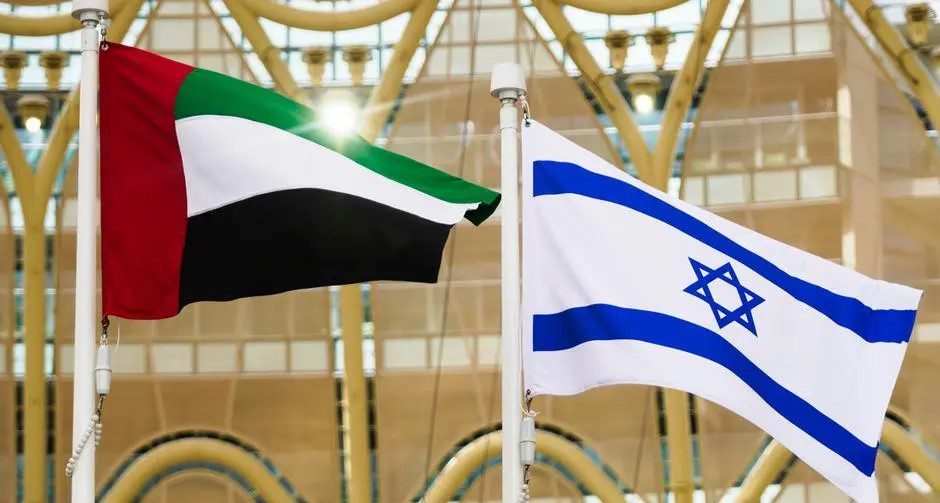
The government of the United Arab Emirates and Israel signed a landmark agreement, Comprehensive Economic Partnership Agreement (CEPA), on 31st May 2022, which became effective from 1st April 2023.
Following are the list of products that UAE and Israel can benefit from exporting:
Country | Products | Export Value USD (million) | Import Value UDS (million) |
UAE | Jewelry | 19,917 | 295 |
Tobacco | 2,820 | 297 | |
Aluminum | 8,633 | 425 | |
Polymers of Ethylene (Primary Form) | 5,181 | 455 | |
Lime, Cement, Fabric | 1,178 | 472 | |
Structures & Part of Iron, Aluminum, and Steel | 1,828 | 280 | |
Plastics (in Primary Form) | 2,321 | 443 | |
Cosmetics, Perfumery, or Toilet Paper | 2,168 | 528 | |
| |||
Israel | Arms and Ammunition | 758 | 1,004 |
Electro-Diagnostic Appliances (for Medical Sciences) | 887 | 312 | |
Tools (Use in Hand or Machine) | 926 | 521 | |
Chemical Products (Miscellaneous) | 2,163 | 880 | |
Other Non-Electric Machinery and Tools | 707 | 590 | |
Instruments and Appliances (for Medical Use) | 1,423 | 619 | |
Fruit and Vegetable Juice (Unfermented) | 179 | 216 | |
Trade Benefits of CEPA
Providing Market Access to UAE Providers
The CEPA agreement sets transparent and clear rules that will help the UAE Service sector with ease of doing business. This will offer an opportunity to UAE service sector to expand and export services t to Israel and other countries.
Reduced Trade Barriers
With simpler customs procedures, reduced and eliminated tariffs, this agreement will enable UAE’s new and existing exporters to trade in Israel more easily and at a reduced cost, which will also benefit the consumers in the UAE.
Increasing Collaboration on Shared Global Challenges
The stronger economic ties with Israel will increase the cooperation on different global issues, such as security, environmental policies and practices, new technology development, and climate changes and fisheries, etc.
Allowing SMEs to export goods and services to Israel
As UAE is progressing towards becoming a knowledge-based economies, the SMEs will have a fundamental role in it. This sector covers 95% of the companies currently operating in the UAE and contributes to more than 50% of the UAE’s GDP. This agreement will provide these SMEs with an opportunity to grow in new and existing markets with access to new customers and networks.
Conclusion
In just a few short years since the inception of diplomatic relations, the partnership between the UAE and Israel has witnessed an extraordinary evolution. Their commitment to fostering cooperation in various sectors, from trade and technology to investment and diplomacy, has not only strengthened their own nations but also set an inspiring example for the entire region. The signing of the Comprehensive Economic Partnership Agreement (CEPA) in 2022 represents a significant milestone, promising to further boost economic ties and open new doors for both nations. As these two dynamic nations continue to collaborate and innovate, the UAE and Israel stand poised to shape the future of the Middle East and beyond through their enduring partnership.
Related Articles
Exploring the Booming UAE-Indonesia Economic Relations
The economic relations between the United Arab Emirates (UAE) and Indonesia have been flourishing in
Comprehensive Guide on USA-UAE Economic Relationship
Introduction The United Arab Emirates (UAE) has been a central player in the realm of international
The UAE and Saudi Arabia – Economic Powerhouses on the Rise
The bilateral trade relationship between the United Arab Emirates (UAE) and Saudi Arabia is characte




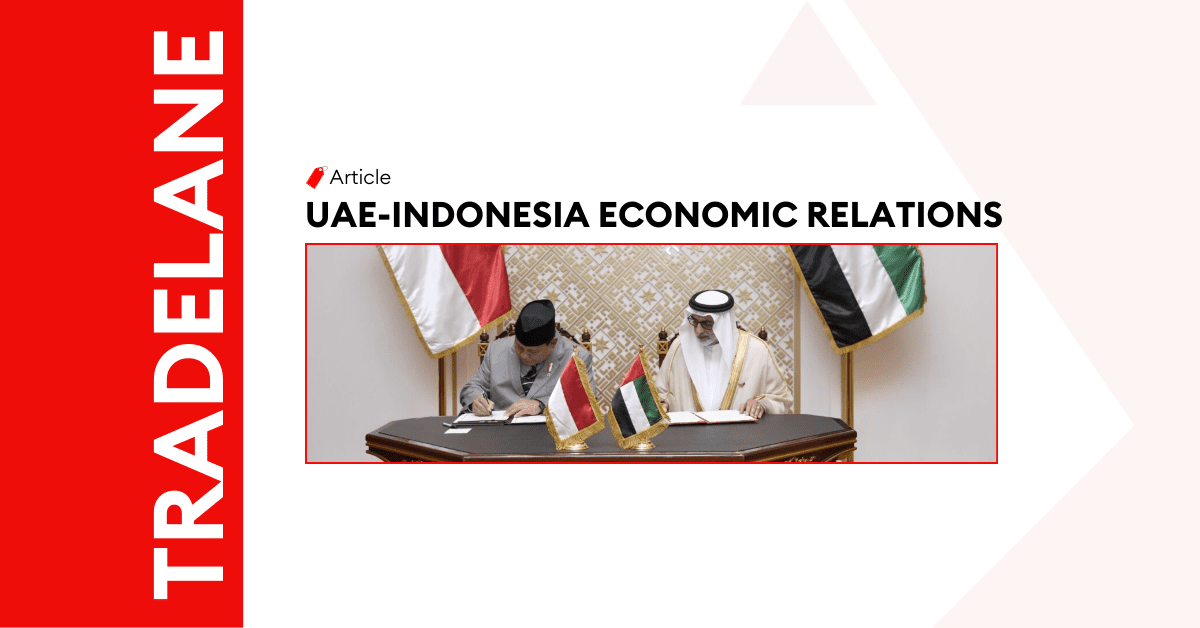
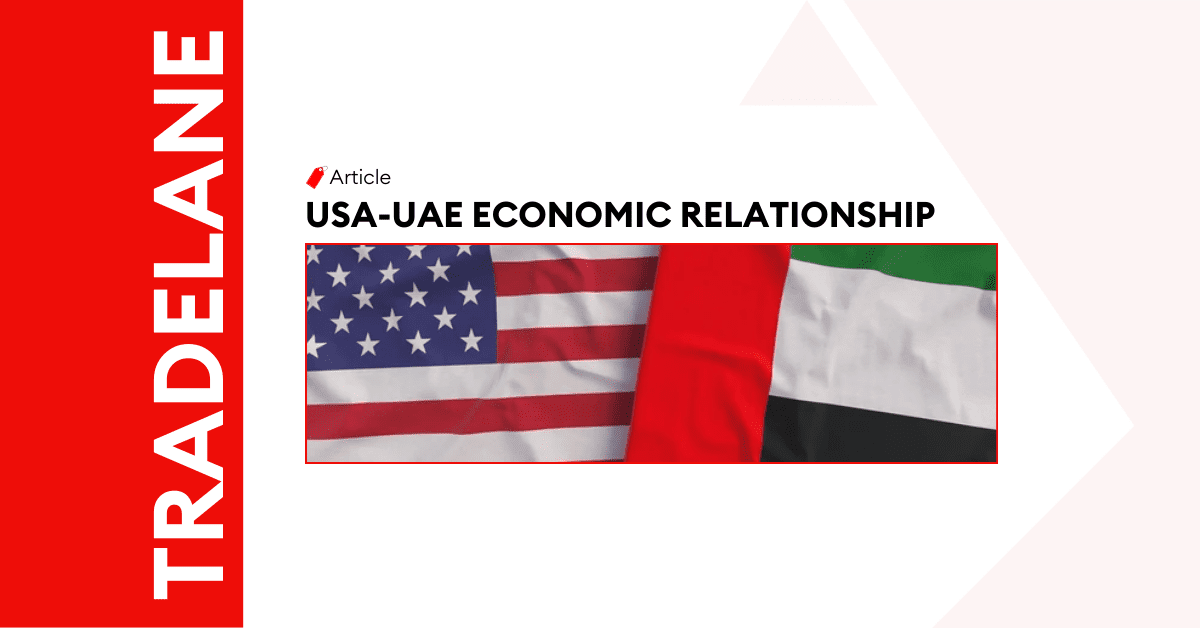
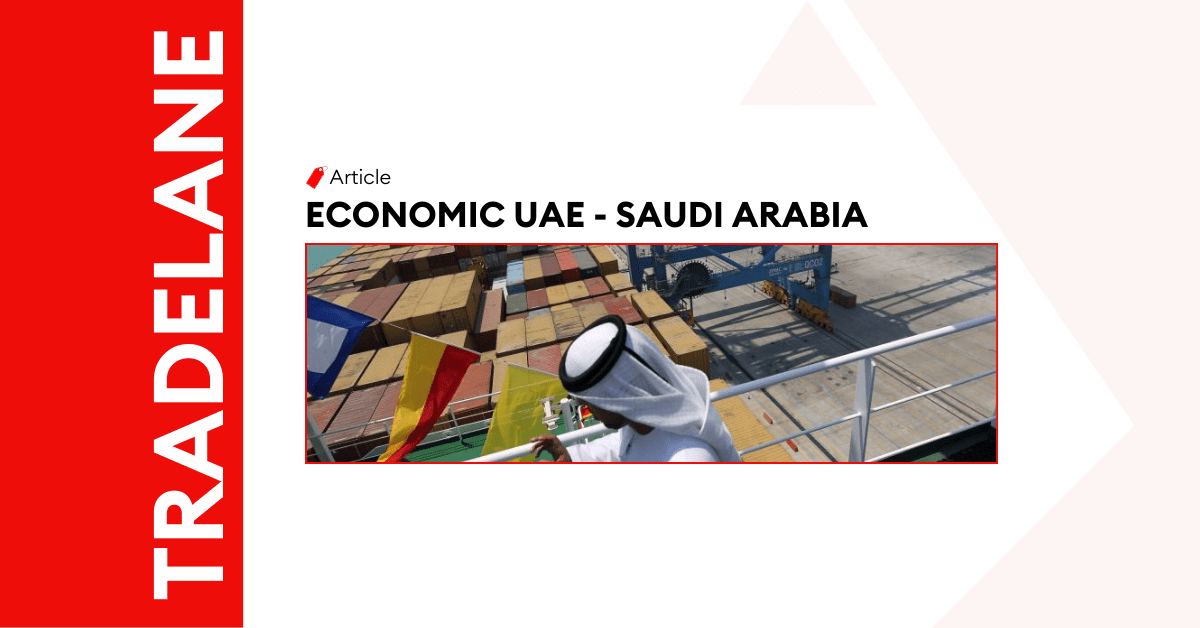
Post a comment
You must be logged in to post a comment.